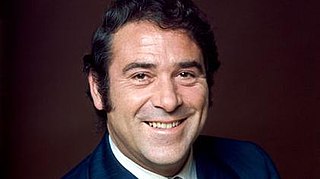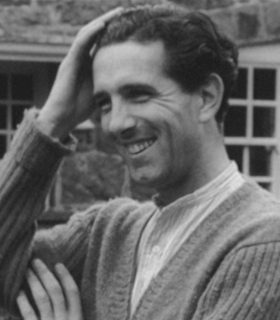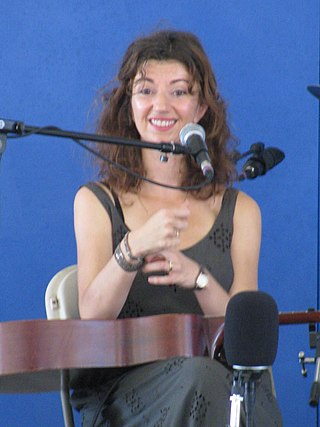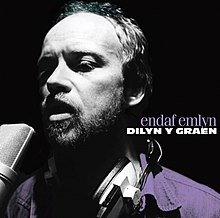"Men of Harlech" or "The March of the Men of Harlech" is a song and military march which is traditionally said to describe events during the seven-year siege of Harlech Castle between 1461 and 1468, when the castle was held by the Lancastrians against the Yorkists as part of the Wars of the Roses. Commanded by Constable Dafydd ap Ieuan, son of the Baron of Hendwr, the garrison withstood the longest known siege in the history of the British Isles. The song has also been associated with the earlier, briefer siege of Harlech Castle about 1408, which pitted the forces of Owain Glyndŵr against the future Henry V of England.

Ivor Lewis Emmanuel was a Welsh musical theatre and television singer and actor. He is probably best remembered, however, for his appearance as "Private Owen" in the 1964 film Zulu, in which his character rallies outnumbered British soldiers by leading them in the stirring Welsh battle hymn "Men of Harlech" to counter the Zulu war chants.

Meic Stevens is a Welsh singer-songwriter. He has been one of the most prominent figures in the Welsh music scene for over five decades, and played a key role in establishing the popular music scene in Wales. He is described by some as "the Welsh Bob Dylan" and has also been compared favorably with musicians such as Syd Barrett. Stevens's songs are mostly sung in his native Welsh language and have a mystical, faintly psychedelic flavour. His work has influenced groups such as Gorky's Zygotic Mynci and Super Furry Animals. He is largely unknown outside Wales.
Gillian Elizabeth Thomas is a Welsh actress, singer, and comedian. Early in her career she was known as Gillian Elisa Thomas.
Ieuan Rhys is a Welsh actor. His television work has included thirteen years in the BBC Cymru soap opera Pobol y Cwm, Seargent Tom Swann in the last series of A Mind to Kill and six series of the Welsh-language version of Mr & Mrs – Sion a Sian for HTV. For the last four series he portrayed Eurig Bell, the "not to be messed with" Deputy Headmaster in S4C's Gwaith/Cartref.

The cinema of Wales comprises the art of film and creative movies made in Wales or by Welsh filmmakers either locally or abroad. Welsh cinema began in the late-19th century, led by Welsh-based director William Haggar. Wales continued to produce film of varying quality throughout the 20th century, in both the Welsh and English languages, though indigenous production was curtailed through a lack of infrastructure and finance, which prevented the growth of the industry nationally. Despite this, Wales has been represented in all fields of the film making process, producing actors and directors of note.
Geraint Griffiths is a Welsh singer-songwriter and actor. He works mainly in the Welsh language.
Hywel Gwynfryn is a Welsh television and radio personality and lyricist. He started working for the BBC in 1964 and joined BBC Radio Cymru at its inception, being the first voice heard on the new station.

Meredydd Evans, known colloquially as Merêd, was a collector, editor, historian and performer of folk music of Wales. A major figure in Welsh media for over half a century, Evans has been described as influencing "almost every sphere of Welsh cultural life, from folk music and philosophy to broadcasting and language politics".

Gwyneth Glyn is a Welsh language poet and musician.

ITV Wales and West, previously known as Harlech Television (HTV), was an ITV franchisee in the United Kingdom until 31 December 2013, licensed to broadcast by the regulator Ofcom.
Brigyn are a Welsh music act from North Wales, consisting of the brothers Eurig Roberts and Ynyr Roberts.
Owen Edwards was a Welsh broadcaster, and the first chief executive of the Welsh-language television channel S4C, the fourth television channel in Wales, a post he held from 1981-89.
Al Lewis is a Welsh singer and songwriter. He became known in the Welsh language media after his song came second in the Cân i Gymru contest in 2007.

Geraint Jarman is a Welsh musician, poet and television producer whose career dates back to the early years of Welsh popular music. He has recorded many albums as a solo artist and with his band Geraint Jarman a'r Cynganeddwyr.

Caryl Parry Jones is a Welsh singer, actress and presenter. She was born in the Flintshire village of Ffynnongroyw and attended Ysgol Glan Clwyd in St. Asaph, but now lives in Cowbridge, in the Vale of Glamorgan.
This is a timeline of the history of ITV in Wales, including the current service ITV Cymru Wales. It does not include events that affect the whole UK network.
This is a timeline of the history of television in Wales. It does not include events that affect the whole UK.
Derek Boote was a Welsh singer and actor.

Edward H. Dafis were a Welsh rock band that existed from 1973 to 1980.









